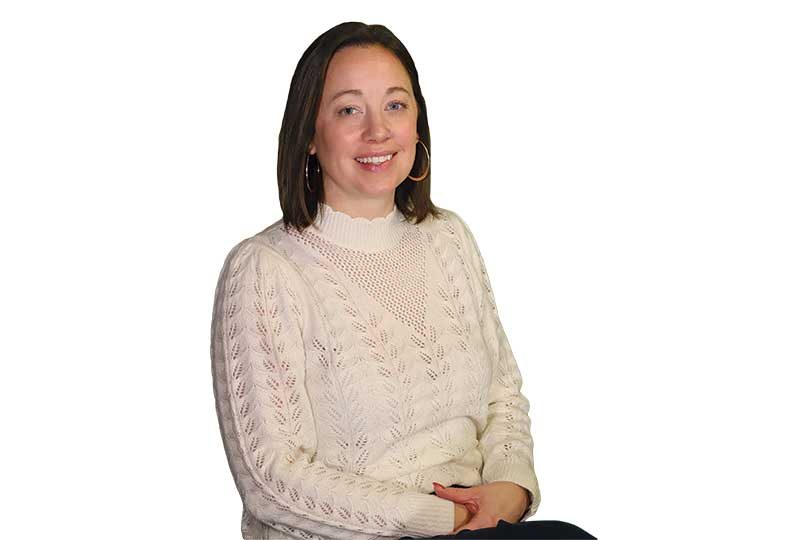
Meet & Greet: Dawn Kinder, director of the Neighborhoods, Housing, and Human Services Division for the city of Spokane

Dawn Kinder has been appointed to serve as the director of the Neighborhood, Housing, and Human Services Division for the city of Spokane by Mayor Lisa Brown.
For the past five years, Kinder was the chief stabilization officer for Catholic Charities Eastern Washington, where she oversaw services for formerly homeless families and individuals, families involved in child welfare, and people exiting institutions.
Previously, Kinder also served in the David Condon administration as the city's director of the Neighborhood and Business Services Division and oversaw eight departments, including planning and economic development, historic preservation, and developer services.
Kinder was raised in Spokane and received a bachelor’s degree in human development from Washington State University and a master’s in social work from Eastern Washington University.
The Journal recently sat down with Kinder to discuss her immediate plans, what drew her to housing and homeless services, and what she hopes to accomplish in this term.
What do you hope to get done in these first 90 days?
The first thing is figuring out warming centers. We’re headed into a cold snap, so we are making sure these surge beds that we’ve been working to add today (Jan. 11) are out there and available so that we’ve got good coverage for these next seven days to ensure that anybody outside can come inside.
The other is supporting the Point-in-Time Count team. The Point-in-Time Count starts soon, and it is a very critical action, not just for the community, but also for our own ability to report and access funding at the state and federal level. There is also some data cleanup and transparency that we want to tackle in the first 90 days.
The other big thing in this initial window is supporting the team here so they know what exactly they are being asked to do, and how to execute on that so we can reestablish strong community relationships with the partners and nonprofits with whom we work.
Then there’s a million things after that.
Homelessness has been a growing issue for years. What do you think are some of the contributing factors?
I think people often don’t understand how intertwined the homeless system is. They think of the House of Charity or the Trent Resource and Assistance Center, but it’s a much bigger system than that and has many agencies managing different levels of state and federal components of the homeless system. The federal government mandates what your homeless system looks like. When one or two pieces aren't working well, the whole thing can’t work well.
When I was here during the Condon administration, we had monthly group conversations with key leaders of all the nonprofits to talk about how things were working, how interventions were moving forward, and what kind of partnerships and leveraging we would do with our limited resources to make things even better. The city was in charge of facilitating that, scheduling it, and coordinating it. And that stopped happening. We lost that infrastructure. Everybody just started working in their own siloed environments and resources got scarcer.
Part of what we’re excited to bring forward in these first few months is that level of coordinated strategic vision and to let the providers be the experts in what they do. There wasn't a regional strategy or coordinated effort that brought providers to the table. Most of the negative impacts I think were born from that vacuum.
How did you know that you wanted to work to solve homeless and housing problems?
I understood from a young age that we had some broken systems, and I wanted to see other people not share in those experiences, because I do think that those traumas create lifelong challenges.
Also, when I was at WSU, I spent my summers working as a day camp counselor for the YMCA, which in my experience primarily served lower-income kids whose parents were working all summer and needed a safe place for their children to go.
It was eye-opening for me to understand how many complicated systems those families are trying to navigate to make sure that their kids are taken care of. Especially in a scenario where there are no options for day care, and summers are tough for working parents with young kids.
Then in grad school, I learned that I like to be disruptive in a productive way. I like to be innovative and creative and find new solutions to complicated problems. I think its possible and people deserve it.
What big dreams do you hope to accomplish while in this role?
I have all kinds of dreams, none of which have been discussed with Mayor Brown. But in my mind, and I think Mayor Brown would agree, Spokane has a solvable problem.
The big critical thing that we need to see in the next four years is a huge increase in investment in behavioral health. We know that mental health, as well as addiction, is a critical battle for us. The people we serve have experienced a lot of trauma and are pretty vulnerable, especially to mental health challenges and addiction issues.
Another thing is that we have a robust shelter system, but it’s not all organized adequately at this point. Moving away from congregate shelters and moving toward more projects that have a little more independence, stability, and space is critical for people. Not only do I think they are better, they are also more dignified.
The third goal is diversifying the options we present to people in emergencies. I’d love to say we’ll solve homelessness, but that is driven by myriad factors that are outside our control. But I think we should try to ensure that if somebody does experience homelessness, that it is rare, it’s brief, and it’s nonrecurring.
This interview has been edited for length and clarity.


![Brad head shot[1] web](https://www.spokanejournal.com/ext/resources/2025/03/10/thumb/Brad-Head-Shot[1]_web.jpg?1741642753)

